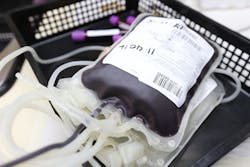A study published in JAMA Internal Medicine of 175 patients who recovered from mild COVID-19 reveals wide variation in the levels of antibodies against the novel coronavirus, ranging from very high levels in 2 patients to undetectable levels in 10—but no significant difference in illness duration, according to a news report on the study from the Center for Infectious Disease Policy and Research (CIDRAP).
Researchers from Fudan University in Shanghai, China, measured antibody levels in COVID-19 patients released from Shanghai Public Health Clinical Center after being hospitalized from Jan 24 to Feb 26.
Of the 175 patients, 165 (94 percent) had significantly higher levels of COVID-19 antibodies than 13 uninfected controls in the convalescent phase of infection. Antibody levels were medium-low in 29 patients (17 percent), medium-high in 69 patients (39 percent), and high in 25 patients (14 percent)., according to a news report from the Center for Infectious Disease Research and Policy (CIDRAP) at the University of Minnesota.
While neutralizing antibodies are considered important to infectious disease recovery and protection against future infection, whether they confer immunity against future COVID-19 infection and how long that immunity might last is unknown.
In an editor's note in the same journal, it was noted that older patients, men, and those with stronger inflammatory responses—who have typically had poor COVID-19 outcomes—had higher antibody levels than other subjects in the study, "suggesting that the higher titers of antibodies do not necessarily lead to higher recovery rate."

